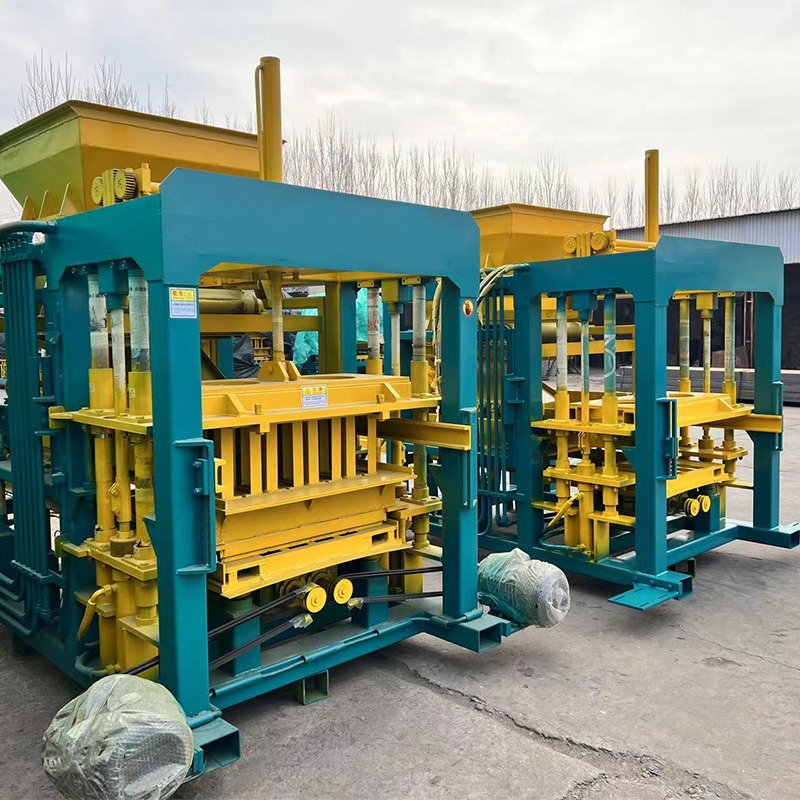
Image source Aiwei Block Machine
Witness the Future of Brick Production Technology
Introduction
The future of brick production technology is here, ushering in a new era of construction that is faster, more efficient, and environmentally sustainable. The traditional brick-making methods of the past are giving way to cutting-edge advancements that leverage automation, robotics, smart systems, and sustainable practices. In this article, we explore the key innovations that are revolutionizing brick production technology and how they are shaping the future of construction.
1. Automation: The Backbone of Brick Production
Automation has emerged as the backbone of modern brick production. Advanced brick making machines are now equipped with sophisticated automation systems that handle various stages of the manufacturing process. From material handling and mixing to molding and curing, these machines reduce the reliance on manual labor, increase productivity, and ensure consistent quality across the produced bricks.
2. Robotics: Precision and Efficiency Unleashed
The integration of robotics in brick production technology has unlocked unprecedented precision and efficiency. Robotic arms, guided by intelligent algorithms, carry out tasks with remarkable accuracy, minimizing waste and optimizing resource utilization. Robots are particularly adept at intricate brick shapes and specialized designs, empowering architects and engineers to realize complex construction projects.
3. IoT and Smart Systems: Real-Time Monitoring and Data Analytics
The Internet of Things (IoT) has revolutionized brick production by enabling real-time monitoring and data analytics. Smart brick-making machines are equipped with sensors that gather data on various aspects of the production process, such as temperature, humidity, and pressure. This data is analyzed to optimize operations, predict maintenance needs, and ensure optimal performance.
4. 3D Printing: Pioneering Innovation in Brick Making
3D printing technology is transforming brick production, allowing for the creation of unique and customizable brick designs. This innovative approach to brick manufacturing enables architects and builders to experiment with intricate geometries and shapes, giving rise to avant-garde structures that were previously unachievable with traditional brick-making methods.
5. Sustainable Materials: Paving the Way for Green Construction
The future of brick production technology embraces sustainable materials, reducing the industry’s environmental impact. Manufacturers are increasingly using recycled materials, such as industrial waste and construction debris, as raw materials for bricks. Additionally, advancements in bio-based materials have opened doors to eco-friendly brick production, paving the way for green construction practices.
6. Carbon-Neutral and Energy-Efficient Kilns
Kilns are an essential part of brick production, but traditional kilns are energy-intensive and emit substantial carbon dioxide. However, the future of brick production technology includes carbon-neutral and energy-efficient kilns. Solar-powered, biomass-based, and hydrogen fuel cell-powered kilns are being developed to reduce greenhouse gas emissions and promote sustainable brick manufacturing.
7. AI and Machine Learning: Optimization and Predictive Analysis
Artificial Intelligence (AI) and Machine Learning algorithms are optimizing brick production by analyzing vast amounts of data to improve efficiency and resource allocation. AI-driven systems can forecast demand, identify potential bottlenecks, and optimize brick recipes for enhanced performance. These technologies ensure that brick manufacturers operate at peak efficiency, minimizing costs and waste.
8. Nanotechnology: Reinventing the Brick Structure
Nanotechnology has found its way into brick production, introducing innovative ways to enhance brick properties. Nano-engineered bricks have superior strength, durability, and insulation capabilities, leading to the creation of energy-efficient buildings that reduce heating and cooling demands. These nano-bricks are setting new standards for sustainable and high-performance construction materials.
9. Portable and On-Site Brick Production Units
In the future, on-site brick production units could become a common sight at construction sites. Portable brick-making machines equipped with advanced technology can be transported to project locations, reducing transportation costs and promoting local brick manufacturing. This decentralized approach minimizes the carbon footprint associated with brick transportation.
10. Collaboration with Architecture and Design Software
The integration of brick production technology with architecture and design software is streamlining the construction process. Digital modeling software allows architects to design structures with bricks in mind, optimizing their placement for both aesthetic appeal and structural integrity. These collaborations lead to a more seamless and efficient construction workflow.
Conclusion
The future of brick production technology is brimming with innovation, automation, and sustainable practices that will shape the future of construction. Witnessing this transformative period in brick production promises a construction landscape that is more resource-efficient, environmentally sustainable, and capable of realizing cutting-edge architectural designs. As the construction industry embraces advancements in automation, robotics, IoT, 3D printing, sustainable materials, and more, we are ushering in an era of construction that is both technologically advanced and environmentally responsible. Embracing these innovations will not only revolutionize brick production but also contribute to a greener and smarter built environment for generations to come.
